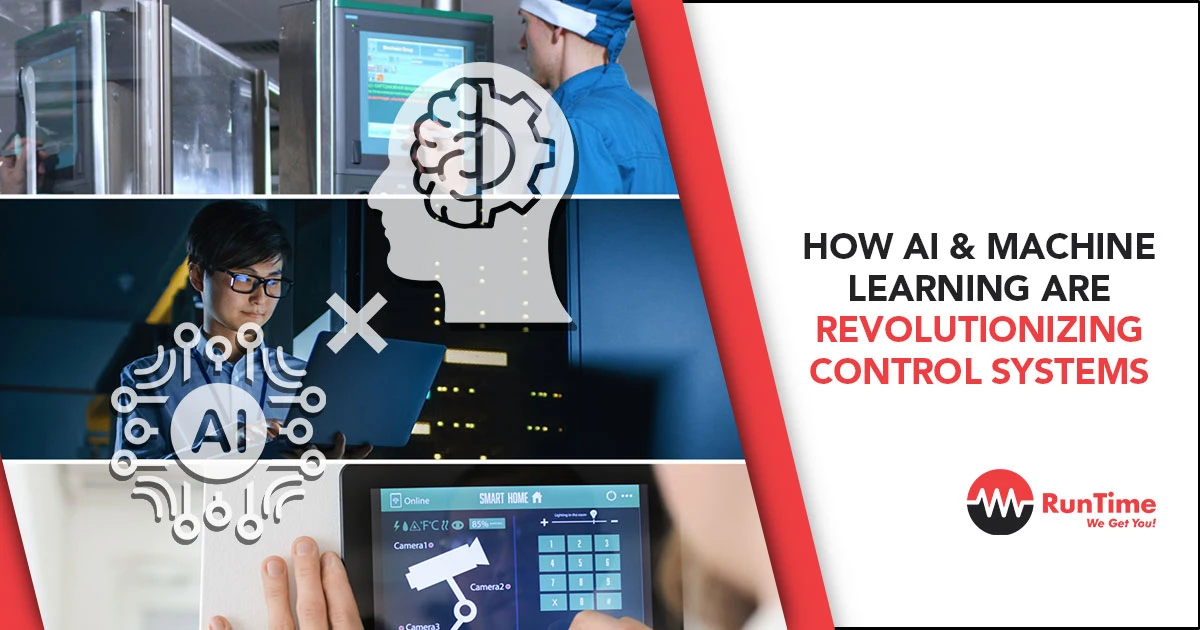Artificial Intelligence (AI) and Machine Learning (ML) are playing a crucial role in modern technological advancement. They are not just threads, but the weavers themselves, who are redefining the fabric of control systems across various domains. This transformation is visible in the manufacturing sector, where they are used in production lines, as well as in the operations of autonomous vehicles, energy distribution networks, and personalized care plans in healthcare. In this article, we will take a closer look at how AI and ML are revolutionizing control systems by enhancing innovation, grounded in technical depth and an analytical perspective.
Technical Foundations and Innovations
Adaptive Control Systems
In traditional control theory, systems are designed to respond in an anticipated manner under predefined conditions. However, the real world is anything but predictable. This is where adaptive control systems powered by AI and ML come in. These systems are well-suited for environments that are characterized by uncertainty and change. They continually learn and adjust their behavior based on real-time feedback.
A prime example of such systems can be witnessed in the manufacturing sector, where adaptive control systems monitor and adjust the production process parameters on the go. These systems use ML algorithms to predict equipment wear and tear, thereby optimizing maintenance schedules to prevent failures and avoid costly downtimes. The algorithms can sift through terabytes of operational data, identifying patterns that precede equipment failure, a task that would be impossible for human operators to perform.
Predictive Maintenance
Predictive maintenance exemplifies how AI-driven systems transform reactive processes into proactive strategies. By leveraging historical data and real-time analytics, AI models can forecast equipment malfunctions before they occur, scheduling maintenance only when necessary. This approach not only extends the lifespan of the equipment but also optimizes maintenance resources, a stark contrast to the traditional, schedule-based maintenance practices.
Decision-making and Process Optimization
In the field of process optimization, Artificial Intelligence (AI) and Machine Learning (ML) algorithms are used to analyze complicated datasets. These algorithms help to identify the best operating conditions by balancing factors such as efficiency, cost, and energy consumption. For example, in energy systems, AI algorithms manage and optimize the flow of renewable energy based on predictive models of supply and demand. This not only improves efficiency but also enables a smoother integration of renewable resources into the energy grid, which promotes sustainability.
Autonomous Systems and Robotics
The impact of artificial intelligence (AI) and machine learning (ML) is best observed in the domain of autonomous systems and robotics. In this field, ML models, specifically those based on deep learning, empower robots and self-driving vehicles to comprehend their surroundings, make decisions, and learn from their past experiences. These systems collect data from a range of sensors and analyze and respond to their environment with a level of complexity that imitates human intuition, while at the same time, with the speed and consistency that only machines can provide.
Navigating Challenges
The incorporation of AI and ML into control systems shows great promise, but it also presents several challenges. The primary concerns are data privacy, security, and the ethical implications of automated decision-making. The opacity of some ML algorithms, particularly deep learning models, raises questions about the interpretability and accountability of decisions made by AI systems.
Furthermore, the effectiveness of AI and ML models depends on the quality and relevance of the data they are trained on. To ensure the integrity and relevance of data, we must implement robust data governance and management strategies that can continually address the challenge of maintaining data quality.
Final Word
Looking into the future, it is apparent that Artificial Intelligence (AI) and Machine Learning (ML) have the potential to revolutionize control systems. Ongoing research is set to unveil more advanced algorithms, including those that leverage quantum computing, which will exponentially increase the computational power available to us.
However, the journey ahead requires a delicate balance between harnessing the capabilities of AI and ML and navigating the challenges they pose to ethics, privacy, and security. It will take a concerted effort from technologists, policymakers, and industry leaders to foster innovation while ensuring transparency, accountability, and public trust.
In essence, AI and ML are redefining the paradigms of control systems across various domains, ushering in an era of enhanced efficiency, reliability, and intelligence. The promise is vast, and the potential is limitless, provided we navigate this transformative journey with foresight, responsibility, and an unwavering commitment to the greater good.
Hire Control Systems Engineers with RunTime
At RunTime, we are dedicated to helping you find the best Control Systems Engineering talent for your recruitment needs. Our team consists of engineers-turned-recruiters who have an extensive network and a focus on quality. By partnering with us, you will have access to great engineering talent that drives innovation and excellence in your projects.
Discover how RunTime has helped 423+ tech companies find highly qualified and talented engineers to enhance their team’s capabilities and achieve strategic goals.
On the other hand, if you’re a control systems engineer looking for new opportunities, RunTime Recruitment’s job site is the perfect place to find job vacancies.









